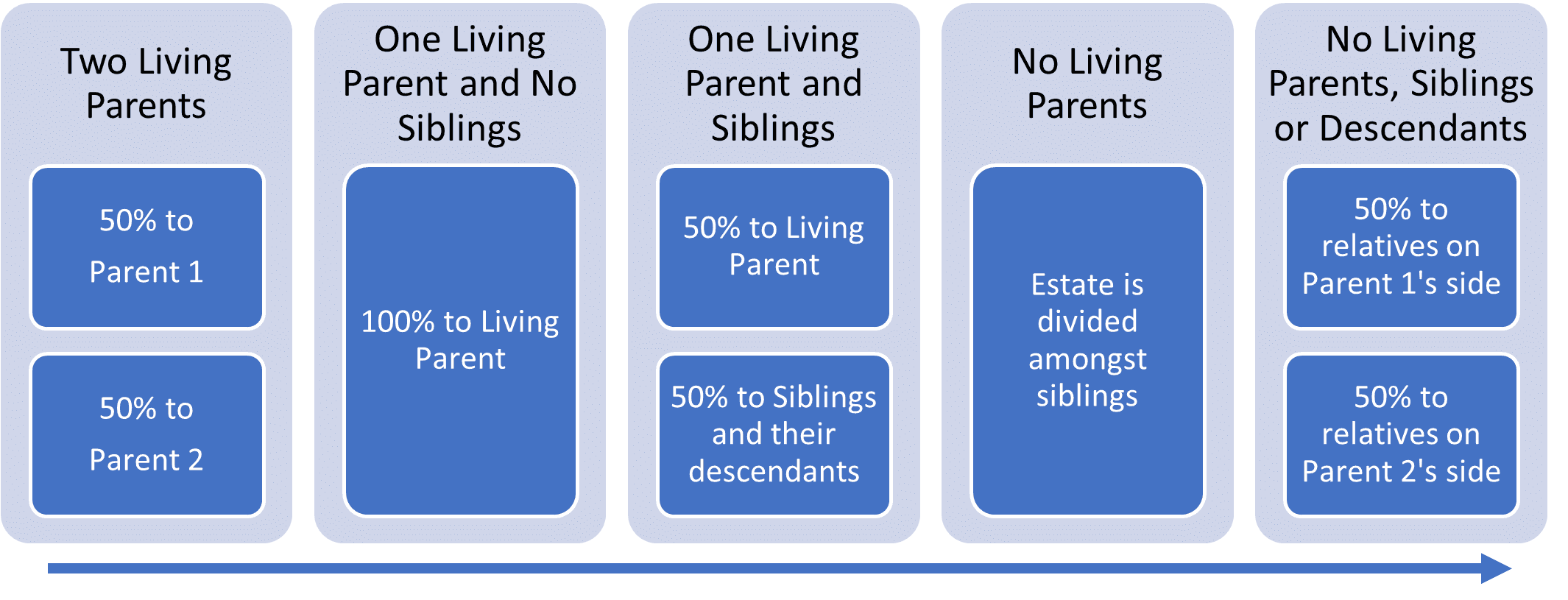
Why do I need a Will?
A former Harris County Judge used to tell the litigants in his courtroom, “The only thing for certain in life are death, taxes, and child support.” This may not be a pleasant thought, however the saying rings true. As morbid as it may be, at some point in our life we will die. It is important to have a plan in place so that you can ensure your assets are distributed according to your wishes. This is when a Will comes into play.
What Is a Will?
A Will is a formal document that outlines what you want to have happen to your property at your death and who will be in charge of distributing your property after your death. The Will can also designate guardians for any minor children that you may have and name a Trustee to be in charge of the assets awarded to those minor children.
The main reasons to have a Will are to:
- Distribute Your Assets in Accordance With Your Wishes
- Appoint an Executor
- Appoint Guardians And/or Trustees for Your Minor Children
- Minimize Family Disputes
In Texas, having a Will is particularly important because of Texas’ laws regarding the distribution of assets at your death without a Will. If you die without a Will in Texas, your assets are distributed according to Texas’ intestate laws. Intestate laws were created to distribute property for an individual dies without a Will. The legislature had an interest in creating these laws, so individuals know what happens to their loved one’s property at their death. They also had an interest in creating these laws, so property does not go unattended.
The intestate laws of Texas distribute your property to your closest relatives. This can be a bit messy depending on your situation.
The following graphic can help show the flow of asset distribution and what would happen to your assets upon death of a single person who is unmarried and has no children:
The above graphic is just one example on how property would pass. There can be many different circumstances. You may be married, have a child who predeceased you, or even adopted. Blended families can also complicate the distribution of assets without a Will because of the rules of community property and separate property.
If you die without living relatives, your property will then be awarded to the state of Texas. This occurs in rare circumstances when one side of an entire family is wiped out. That being said, if you have specific wishes, your wishes may not be honored. This is why it is so important to have a Will.
Having a Will allows you to choose where your property will go and who will manage this after your death. The individual who manages your estate after your death is called an Executor (or an Executrix if they are female). The Executor is responsible for distributing the assets in accordance with your wishes in your will and also ensure that all your debts, taxes or other liabilities owed by your estate get paid.
The Executor you appoint should be someone that you know and trust. This could be a family member, a friend, or even an entity like a bank. However, if an entity is appointed as Executor, you will likely have to pay them out of your estate, significantly decreasing the award to your beneficiaries. If you die without a Will, the Court must appoint an Administrator to do this job. That Administrator also gets paid out of your estate. Having an Administrator appointed can be a lengthy and costly process.
Another important reason to have a Will is to appoint a guardian for your minor children. If both parents of a child pass away without naming a Guardian, the Court will appoint one on their own. This can result in two sides of a family fighting for the rights of a child tearing the family apart. The Court must decide what is in the Best Interest of the Child when appointing a Guardian. A parent’s perspective on what is in their child’s best interest may differ from the Court. By naming a Guardian for your minor child, you can ensure that your children are cared for by someone that you know and trust.
If you die with minor children as beneficiaries of your estate, you may want to set up a contingent trust. A contingent trust is a trust that can be created in your Will that provides for a minor child’s health, education, and welfare. It is oftentimes not practical to provide minor children with a lump sum of money to be used at their disposal. A contingent trust names a Trustee, the person who is in charge of the funds awarded to the minor child. The Trustee is in charge of distributing the funds to the minor child for their health, education, and welfare. Once a minor child reaches the age of majority (or another age as laid out in your Will), the Trustee is removed and the child receives the funds to use at their discretion.
In addition to the benefits outlined above, a Will can help reduce family conflicts after your death. It can also provide you with peace of mind that your affairs have been arranged before your passing. Oftentimes when there is no Will, family members may disagree on how the assets are distributed. For example, if you pass and have two children, one of which you have never spoken to, that child may inherit your estate. The child that does have a relationship with you may become upset by this. This could lead to lengthy and costly litigation. Having a Will allows you to clearly communicate your wishes which can reduce familial conflict.
There is always a chance that a family member contests your Will. This is called a Will Contest. A Will Contest is a legal proceeding where someone challenges the validity of the Will. Nothing can prevent an individual from contesting your Will, however having a Will can limit the validity of an individuals Will Contest and dissuade them from contesting.
If an individual wishes to contest your Will, there will certainly be a delay in the distribution of your estate. The reason for this is because a litigation will ensue. Litigation inevitability will increase the cost your estate will incur. Litigation includes attorney’s fees, court costs and a long court battle. A Will contest will also cause strain on the family ties. If a brother and sister are fighting over a parent’s estate, one could make the assumption that the brother and sister’s relationship will not be the same after the litigation.
To avoid a Will Contest, it is important to consult a knowledgeable attorney who can draft your Will. There are many free resources available, but they might not always be accurate. You will want to consult an attorney to draft a Will that is clear, legally valid and makes your intentions known. An attorney can ensure that your wishes are spelled out to avoid confusions or misinterpretation of your Will. The attorney could also recommend a “No Contest” Clause in your Will. This could encourage the beneficiary to not contest the Will at the expense of losing their entire inheritance.
Can I Change My Will Once I Execute It?
So what if your wishes change? That’s okay! Once you sign a Will, you are not always committed to it. Life happens and circumstances change. You may get married, experience loss, have children or acquire new assets. When this happens, you will want to update your Will to reflect your new life changes. This ensures that your Will remains current and up to date. There is no limit as to how many times you can update and revise your Will. You just want to ensure that your Executor has a copy of the most up-to-date Will.
Call Hunt Law Firm Today
Creating a Will in Texas is a relatively easy process. You can create a Will on your own, but it is recommended that you speak with an attorney to ensure that the document is property drafted and executed pursuant to the most recent laws. At Hunt Law Firm, PLLC, we have streamlined the process to make it quick and easy. Our knowledgeable attorneys will access your situation and prepare your documents in accordance with your wishes.
A Will is a fool-proof way to ensure that your assets are distributed in accordance with your wishes and that the individuals you want to be in charge, are in charge. Having a Will can provide you with a peace of mind, so don’t wait until it is too late – create a Will today!


More than Just a Will
A Lot More Goes Into Hunt Law Firm’s Flat Fee Small Estate Packages Than Just A Simple Will. OUR SIMPLE, FLAT-RATE ESTATE PLANNING PACKAGE INCLUDES:
Each of these documents plays an important and necessary role in a complete, but straightforward estate plan.
-
Quick Response Time
You can almost always expect a call back in 24 hours, with most being returned the same day.
-
One-on-One AttentionYou can always count on receiving personalized attention from our small, boutique firm.
-
Compassionate & Honest
You'll get an attorney who is compassionate, receptive, and responsive to your needs.
-
Cost-Effective Firm
We utilize the latest technology to reduce costs, including access to an online client portal.
Testimonials
WHAT OUR CLIENTS SAID ABOUT US
-
"Responsive, Informative, and Caring"Mr. Hunt was responsive from the start, replying to my initial inquiry questions on a Sat/Sun. My case had urgency, and the staff got my case started right away. Brittany took time to explain the priority and timelines for information they needed from me.Tammy
-
"Top-notch professionalism and quality."Hunt Law Firm, PLLC is top-notch. I've used them for over 3 years and can't say enough about their professionalism and quality of work.Wyatt
-
"Patience, respect, and complete professionalism."I found a law firm that really cares! From the first call to set an appointment to the signing of my prepared estate planning documents, I was treated with patience, respect, and complete professionalism.Cherry
-
"Absolutely wonderful team."Hunt Law Firm, PLLC, is absolutely wonderful. I'll be recommending this amazing firm to everyone in the future.Rifath
-
"Working with the Hunt Law Firm made our estate preparation seamless."Right from the initial consultation meeting, to the final signing, the entire staff provided the needed support to accomplish our objectives.Kola
-
"Fantastic, friendly, and efficient service!"Fantastic, friendly, and efficient service! They did exactly what we needed in a very professional way. Would definitely recommend Hunt Law Firm, PLLC for estate planning.Fran








